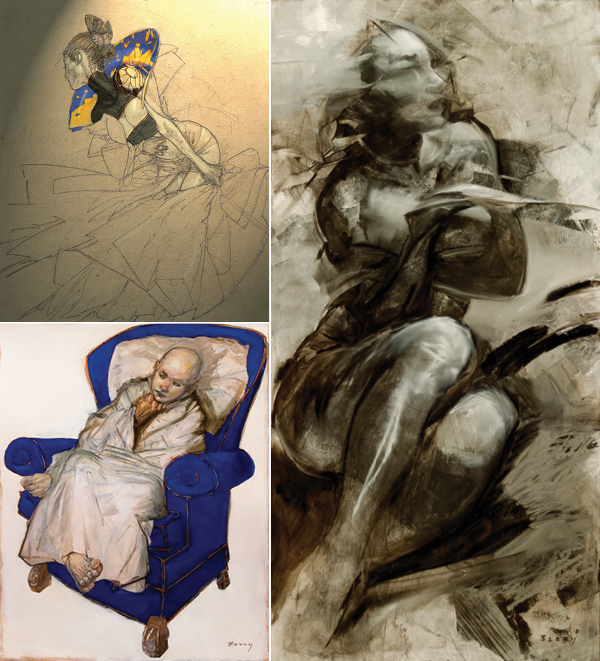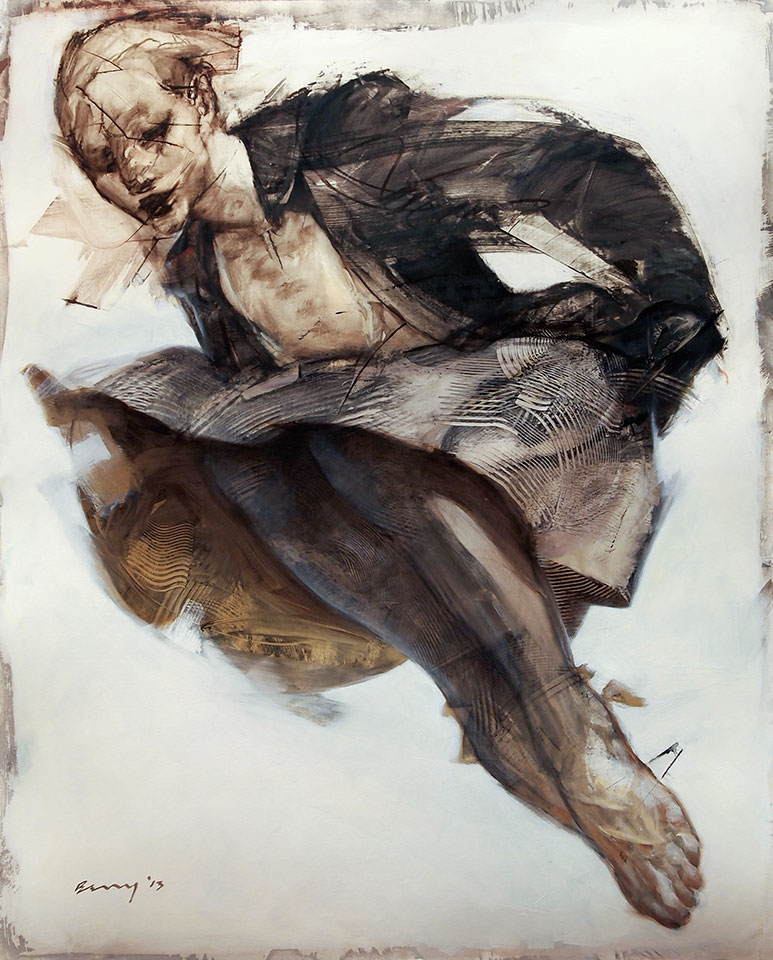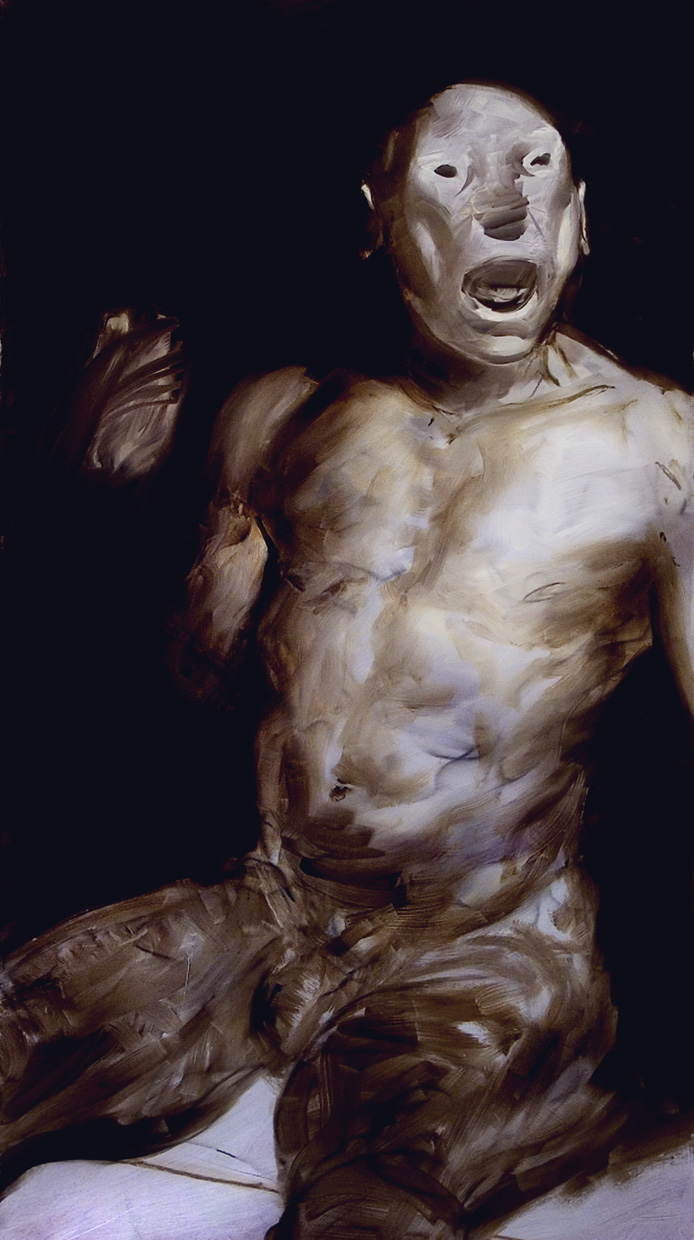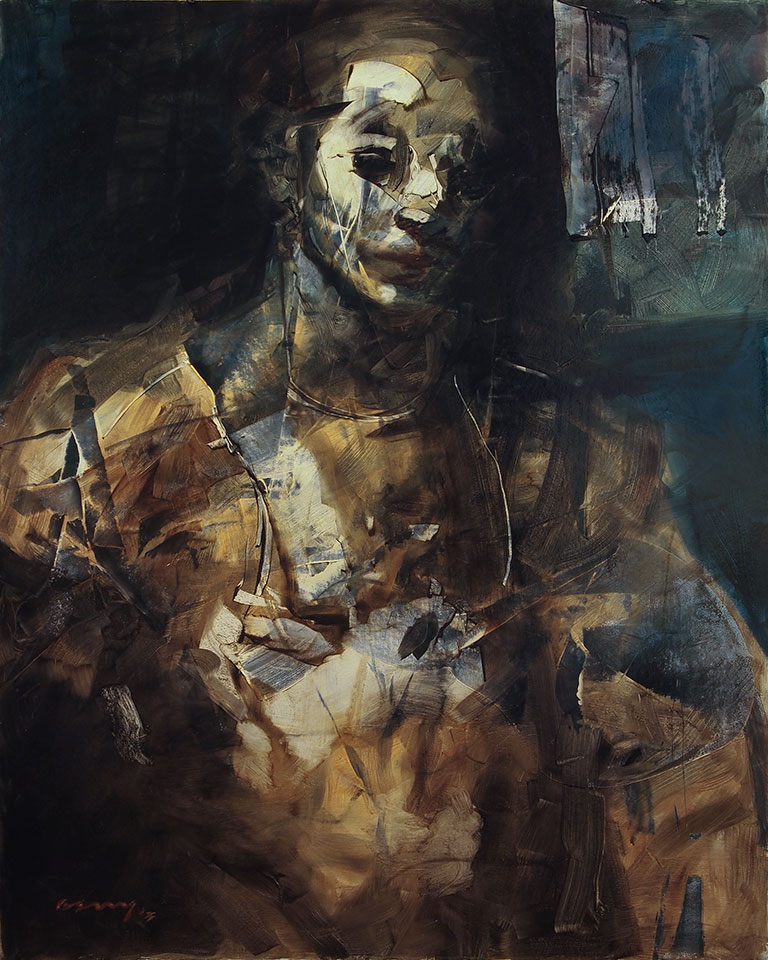Why is figurative art important? According to Rick,
“Our figuration of people is the pulse-taking of who we are and how we define ourselves … you actually use the art to see.”This quote is excerpted from an interview recently published in Paper Darts, an innovative arts and literature magazine that features creative pioneers. The interview, conducted inside Rick’s studio by writer Maria Anderson, explores all the questions that count:
What is Rick’s art philosophy?
What is his creative process?
What personal history is he building upon?
The profile includes a broad selection of paintings and drawings as well as a video clip of Rick from Maria Carbardo’s award winning art documentary, Better Things.
To discover why Ms. Anderson titled her interview “The Continuous Feast”, click here.

Clockwise from top left: “Dancetron” (graphite, digi-post processed), “Vanish” (oil), “Changeling” (oil)
© RickBerryStudio.com

The following is an excerpt from the Rick Berry interview at Warholian.com
Painting, for Berry, is about seeing. Most important are two things: the first is the human form, and the second is breaking out of what he terms the dog-tricks of classical consciousness into something more instinctual.
The writer Richard Boswell defines the short story as being about a moment after which nothing will ever be the same again. Berry’s work has this sense of immediate, irreducible clarity. His paintings’ subjects are isolated in a moment of transition. “And there is something breathtaking about seeing a minimum of marks pull this off,” he says.
We are pleased to announce Rick’s oil painting – Injury Prone – is included with this year’s best in Spectrum 21, the art annual promoting contemporary fantastic arts.
I asked Rick about his painting exhibited at Pease International Tradeport, NH last fall,
“Injury Prone is about the athlete warrior.
Jacked on steroids, surgically repaired and activated on short recovery with pharmacological fixes; forced to perform schedules designed to suit media not health, he’s super powerful, a designer being.
But is it an Archilles bargain with a twist? Life is incandescent for a brief time. The violence both without and within takes a toll. Once great, the athlete warrior endures premature, diminished physical health and sometimes damaged cognitive capacity as well.
The twist is that this decline is not short, but a lingering period of social indifference and fading for many who, in their youth and without regardful counsel, never saw this coming.”
 “Steroid Giant” is an earlier painting on the topic
“Steroid Giant” is an earlier painting on the topic